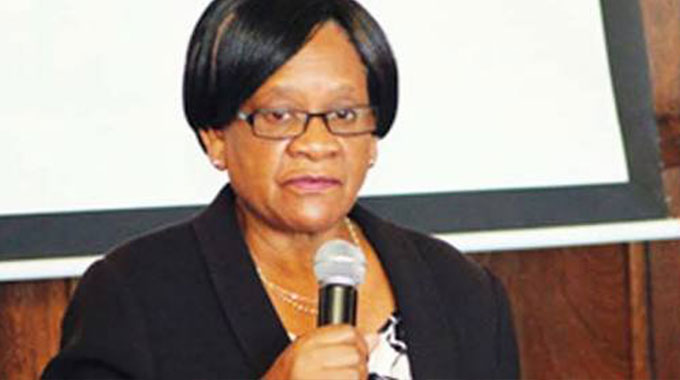Plans for VFEX commodities exchange gather momentum

Enacy Mapakame Business Reporter
THE Government is exploring the setting up of an offshore financial services centre in Victoria Falls.
Finance and Economic Development Minister Professor Mthuli Ncube says the envisaged commodities exchange will be a key component in the setting up of an offshore financial services centre that will boost opportunities for global investment in the country.
Prof Ncube said the commodities exchange will enhance the country’s financial services sector, especially capital markets and attract investment in the sector by allowing free flow of international capital.
“The offshore financial services centre will help develop and deepen the financial service sector, through provision of opportunities for global investment. We can all agree that investment is essential in driving economic growth and creating an attractive investment climate is one step towards achieving that.
“An offshore financial services centre is in reality an attempt to create an investment environment in which international capital can flow freely.
“Free flow of capital requires both the supporting legislation, and the underlying products of which the commodities exchange is part of the infrastructure that provides the investment products,” he said while officiating at the four-day commodities exchange workshop hosted by the Victoria Falls Stock Exchange (VFEX) in conjunction with the Dubai Gold and Commodities Exchange (DGCX).
The workshop is a culmination of a Memorandum of Understanding (MOU) between VFEX and DGCX signed last month which provides for extension of technical support from DGCX to VFEX with the ultimate aim of establishing an international commodities exchange in Zimbabwe.
The ongoing workshop in Victoria Falls is to allow key stakeholders to learn from the DGCX experience and exchange ideas on the establishment of a local commodities exchange.
Prof Ncube highlighted that it was important for VFEX to tap into the expertise from DGCX which has been a leading derivatives exchange in the Middle East and has played a pioneering role in developing the regional market for derivatives trading, clearing and settlement.
Trading of commodities is ranked number three after foreign exchange and bonds, in terms of value traded, creating scope for Zimbabwe to further diversify shares trading into commodities and bonds trading.
That way, Prof Ncube said, would also lead to increased economic activity through job creation, expansion of the mining sector and overall economic growth.
He highlighted: “The growth in our financial markets will no doubt lead to creation of employment, increase export earnings in the formal channels and strengthen capital — raising opportunities for our extractive sectors.
This will ultimately help in transforming our country to an upper middle income economy in line with Vision 2030.
“The onus is therefore on every stakeholder here present to take advantage of this workshop to learn how we can utilise the commodities exchange to our benefit.
“The technical support that will be provided by DGCX, will help all stakeholders here present, to gain an understanding of how the commodities exchange will work. The successful establishment of the commodities exchange will also enhance direct investment in the country.”
Mines and Mining Development Minister Winston Chitando said the exchange was a welcome development that would help the country achieve a US$12 billion mining sector by 2023 and boost the sector’s contribution to overall economic development.
“It is also expected to address issues of smuggling through use of a transparent market and allow small scale miners realise meaningful returns. The mining sector is one of the main pillars of our economy contributing more than 45 000 workers in formal employment and at least 50 percent in export earnings annually.
“A commodity exchange would complement this strategy as it represents an organised market for the finished or semi processed product from the mining sector. A transparent market may help curb smuggling in the sector and also assist miners in planning.
“We also have to look at how the exchange can assist our small scale and artisanal miners. The contribution of this sector has always been phenomenal but they are the least equipped and least empowered segment. We will, at some point, need to cascade the anticipated benefits of the commodity exchange to this sector so that they are not left behind,” he said in a presentation made on his behalf by his Deputy Minister Polite Kambamura.











Comments